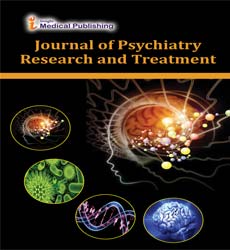Presenilin1 fad mutants impair angiogenic functions of vegfr2 in brain endothelial cells.
Abstract
Alzheimer’s disease (AD) is a multifactorial and progressive neurodegenerative disease where cerebrovascular abnormalities are commonly observed. Brain vascular alterations occur before the appearance of neuropathology in animal AD models. Various factors, including decreased sprouting angiogenesis, can cause the reduction in capillary density observed in AD brains. Angiogenesis is a reparative function of the brain in response to toxic insults and is regulated by endothelial cells (ECs) and angiogenic factors such as the Vascular Endothelial Growth factor (VEGF); impairment in this function would render the brain vulnerable to toxic insults and lead to neurodegeneration. The purpose of this study is to examine the effects of Presenilin1 (PS1) mutants linked to familial AD (FAD) in the VEGFinduced angiogenic signaling and functions of brain endothelial cells. Methodology and Theoretical Orientation: Primary cortical endothelial cells (pCECs) from brains of wild-type (WT) and knock-in (KI) mice expressing either PS1 M146V or PS1 I213T FAD mutant in heterozygous state were isolated and cultured. These mice constitute a “humanized” FAD model having the same genotype as human FAD patients. We performed in vitro angiogenesis assays including sprouting on beads, cell migration and tube formation using pCEC cultures. Processing of VEGFR2 was detected in HEK293 cells overexpressing VEGFR2 in the presence or absence of VEGF-A and γ-secretase inhibitor (RO4929097). The same processing was also analyzed by western blotting in PS1 M146V and I213T mutant pCECs treated with VEGF-A. The role of γ-secretase in VEGF-induced formation of angiogenic complexes between VEcadherin and Rok-α kinase was detected in the presence or absence of RO4929097 with immunoprecipitation and western blotting. VEGF-induced phosphorylation of signaling molecules downstream of VEGFR2 such as ERK1/2 and Akt kinases and PLCγ1 was also examined in WT and both PS1 FAD mutant pCECs by western blotting. Findings: We found that VEGFR2 is processed by γ-secretase and that this processing together with VEGF-induced sprouting, tube formation, migration and angiogenic complexes between VE-cadherin and Rok-α kinase are decreased in the presence of γ-secretase inhibitor or by PS1 FAD mutants. Furthermore, the VEGF-induced phosphorylation of ERK1/2, Akt and PLCγ1 is decreased in PS1 FAD mutant pCECs. Conclusion & Significance: Our findings show that VEGFR2 is processed by γ-secretase, which promotes VEGFinduced angiogenic functions of brain ECs through activation of VEGFVEGFR2 downstream signaling. Our data also show that PS1 FAD mutants decrease both the VEGFR2 processing by γ-secretase and the VEGF-induced angiogenic signaling and functions of brain endothelial cells, providing a mechanism via which FAD mutants affect brain angiogenesis and promote neurodegeneration.
Open Access Journals
- Aquaculture & Veterinary Science
- Chemistry & Chemical Sciences
- Clinical Sciences
- Engineering
- General Science
- Genetics & Molecular Biology
- Health Care & Nursing
- Immunology & Microbiology
- Materials Science
- Mathematics & Physics
- Medical Sciences
- Neurology & Psychiatry
- Oncology & Cancer Science
- Pharmaceutical Sciences
